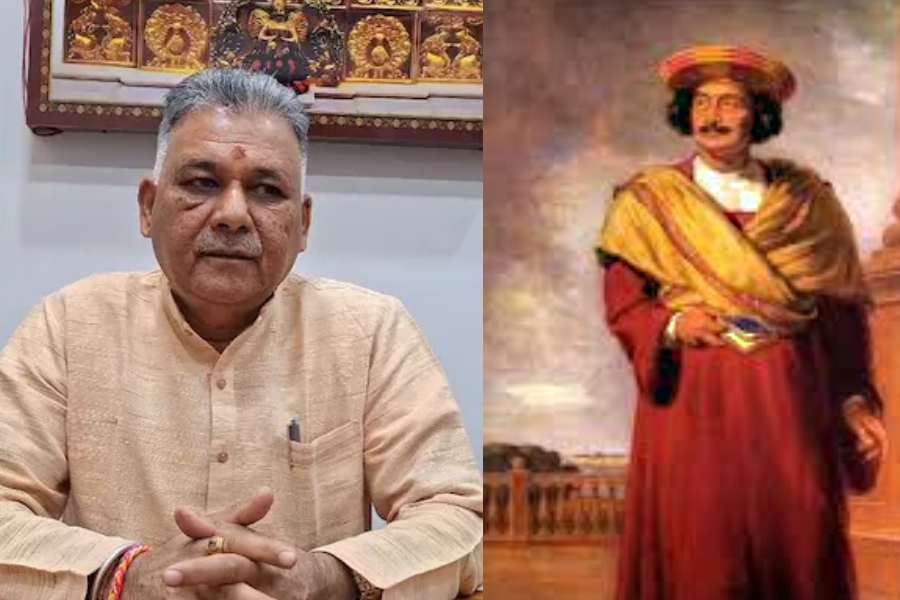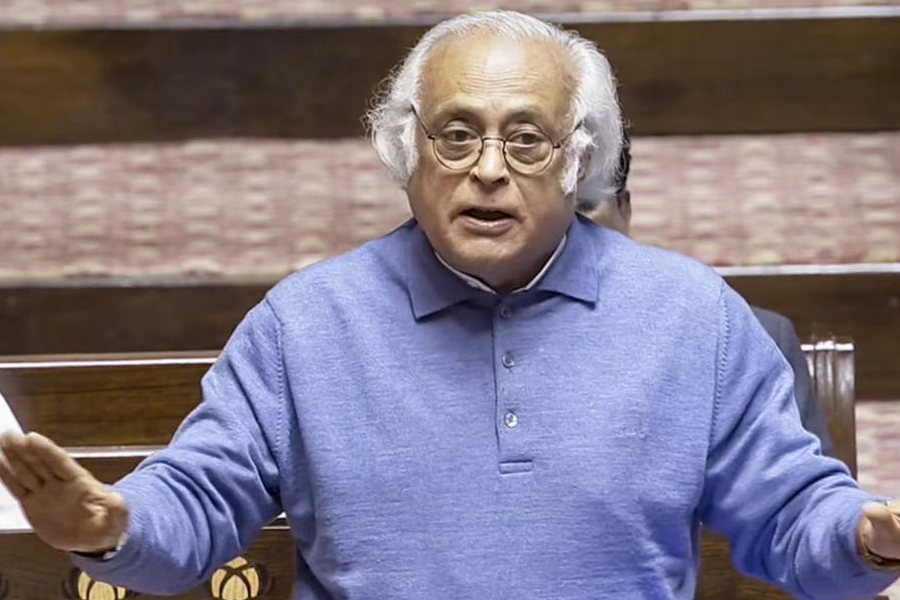Madhya Pradesh higher education minister Inder Singh Parmar has spent the last 48 hours explaining what he meant, and then what he did not mean, after suggesting that 19th-century reformer Raja Rammohan Roy worked as a “British agent.”
Parmar’s clarification arrived on Sunday in a video message. He said he had “accidentally misinterpreted” Roy while describing the life of Birsa Munda. “I deeply regret this and I apologise,” he said, adding that he respected Roy, whom he now called a “renowned social reformer.”
Earlier on Saturday, Parmar, speaking at a Birsa Munda Jayanti event in Agar, Malwa ignited a backlash.
Parmar told the gathering that Roy, often credited with pushing Bengal and parts of India into modern education and social reform, was aiding British interests by dividing Indian society along caste lines.
He also claimed that English education in Bengal had created a “vicious cycle” of religious conversions. And he credited Birsa Munda with breaking this cycle and protecting tribal identity.
Now, Parmar says it was all a “slip of tongue.” But the slip stayed long enough to reopen a familiar debate in India: who gets to interpret history, and how.
The Congress Party pounced.
“Shameful,” spokesperson Bhupendra Gupta said, asking whether the abolition of Sati should then also be viewed as “British brokerage.”
The Trinamool Congress called the BJP a “misogynistic party.”
“What @BJP4India leader and Madhya Pradesh Higher Education Minister Inder Singh Parmar has said is nothing but a reflection of the BJP’s filthy mindset”, they said.
On X, TMC ripped apart the BJP and said that they continue their pattern of insulting Bengal’s culture and denigrating Bengal’s legendary icons.
Hitting out at the BJP, West Bengal minister Shashi Panja also said the statement made by MP minister Inder Singh Parmar on Raja Ram Mohan Roy showed that the party was trying to demean Bengal's intelligentsia.
The senior TMC leader accused the BJP of trying to "demean" Bengal's people and intelligentsia in a bid to subdue the pride and the soul of the state.
"If the BJP wants to axe its own foot, it is free to do so; but it cannot insult Bengal," she said, claiming that the people of the state are watching the "attack on the pride of Bengal."
But this is not Parmar’s first detour into contested history.
Last year, he had proclaimed that India was discovered by a merchant named Chandan. “We have been taught the wrong history,” he said at a university convocation, suggesting that the accepted historical narrative was distorted for generations.
His ministry has also pushed colleges to include 88 specific books in their libraries, many written by authors associated with the Rashtriya Swayamsevak Sangh (RSS), including three by former senior RSS leader Suresh Soni. The directive raised concerns in academic circles about ideological filtering of educational material.
When he served as school education minister, Parmar declared that “only lies have been taught in the country.” He argued that historians had altered India’s “true” past and portrayed foreign explorers as heroic discoverers.
According to him, “agents were placed in India” before and after independence to shape the nation’s history.
Raja Rammohan Roy’s place in history is not ambiguous.
Roy, writing and agitating more than a century before independence, argued for women’s rights, fought for the abolition of Sati, debated Christian missionaries, and demanded a rational, Indian modernity.
He supported English-language education because it opened scientific and administrative disciplines to Indians.
In fact, several colonial officials at the time dismissed him as inconvenient. He petitioned against arbitrary colonial regulations. He pushed for Indians to be treated as citizens, not subjects.
Roy’s early life was shaped in a Bengal that was still negotiating cultural upheaval. He argued against idol worship, challenged orthodox Hindu practices, and even sparred with Christian missionaries who tried to claim him as their ally.
Parmar made his claim at a commemoration of Birsa Munda, the tribal leader who fought British forces and mobilised the Munda community against exploitative landlords and missionaries.
“Birsa Munda wanted to study,” Parmar said at the event. “But after understanding the missionary activities happening there, he left the school and joined the movement against British rule.”
That part of the story is not contested. The leap to Rammohan Roy was.











